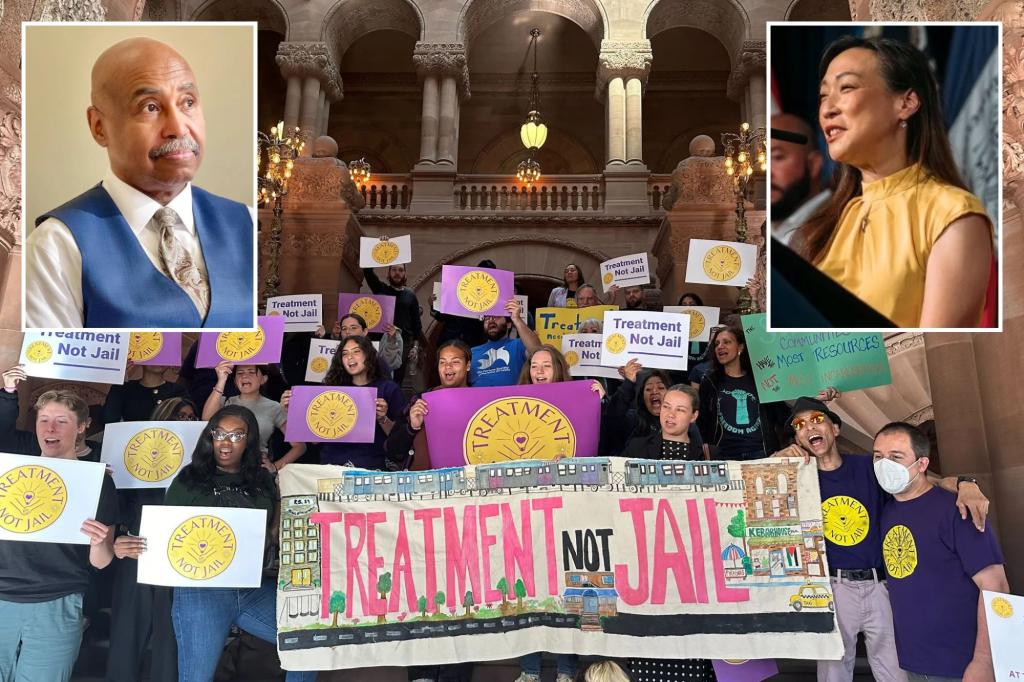The City Council has committed $2 million to small mental health “clubhouses” that are at risk of closure when their contracts expire on September 30, but advocacy groups have warned that the funding is not enough to keep all the clubhouses open indefinitely.
During budget negotiations, Mayor Eric Adams’ office said it would agree to spend the $30 million only on larger congregate venues, not smaller, neighborhood congregate venues, according to City Council officials.
“It was clear the administration was getting its way, so the council had to step in,” a source told The Post.
Five of the nine smaller clubhouses that didn’t get the new contract are interested in $2 million in City Council discretionary funds now being offered and are scheduled to meet with City Council members on Wednesday, said Lawrence Fowler, who runs the Harlem neighborhood Rainbow Clubhouse, one of the nine clubhouses.
But Fowler said the discretionary budget is not enough to keep the clubhouse open indefinitely.
“Our calculations suggest that the funding will not be sufficient to stay open beyond mid- or late-March,” Fowler said.
He vowed to keep fighting the city until a small clubhouse is built into the regular recurring budget.
“We’ve won the battle, but the war still needs to continue,” Fowler said.
The small clubhouse is supported by Linda Lee, chair of the Mental Health, Disability and Addiction Committee.
“In a budget where the City Council fought hard to revive many initiatives, I am proud that they stood up to allocate vital funding to save some of our smaller clubhouses that were at risk of closure due to administrative issues. [Request for Proposal]” Lee told the Post.
“While we know more needs to be done to ensure these programs continue to operate, my colleagues on City Council and I remain committed to keeping Clubhouse’s doors open and expanding access to services to some of the most vulnerable New Yorkers.”
Lee and 36 other city council members sent a letter to city Health Commissioner Dr. Ashwin Vasan on June 20, calling for the city to resume funding for small mental health clubhouses.
“We are committed to keeping these clubhouses open to avoid a disastrous setback for our city’s mental health care system, which is already in the midst of a severe crisis,” the letter said. “We call for reinstating funding for these essential services for our most vulnerable and isolated New Yorkers.”
Clubhouse advocates sounded the alarm in The Washington Post when the city restricted $30 million in funding to clubhouses with more than 3,000 members.
Experts said the model works best with a combination of large and small clubhouses, as some members may have difficulty adjusting to larger groups or may not be able to travel long distances to larger, more remote locations.
Clubhouse directors also complained that the city’s action did not allow enough time to relocate members interested in joining the larger clubhouse.
The mayor’s office did not immediately respond to The Post’s request for comment.

